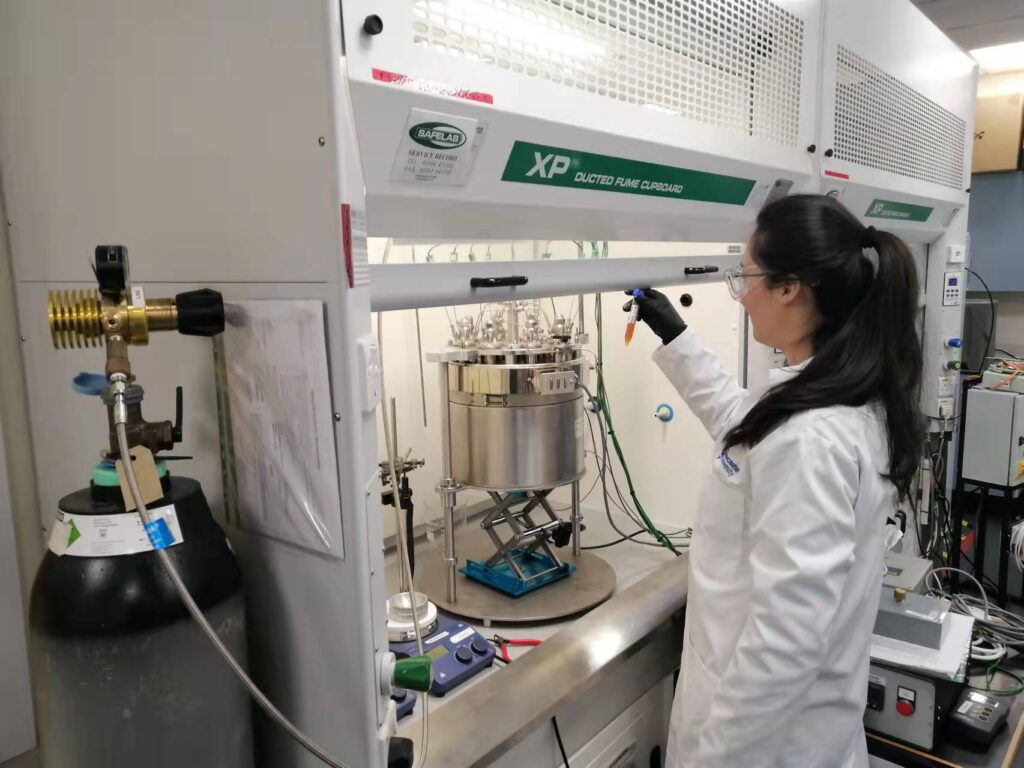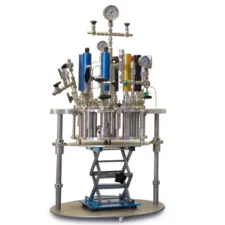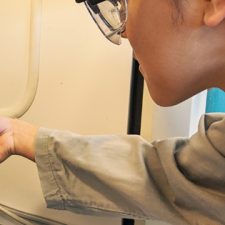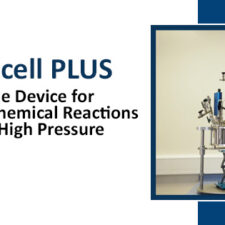Asynt reports how the Process Intensification Group, within the School of Engineering at Newcastle University, UK is using the MultiCell-PLUS High-Pressure Reactor as part of their program of ongoing research to create a new environmentally friendly generation of catalysts for production of biorenewable chemicals.
Why are sustainable and affordable catalysis materials needed?
Many industrial processes rely on catalysts containing expensive precious and metals, or metals sourced from areas of conflict. A key objective for the Process Intensification Group has been to develop affordable, less hazardous catalysts to achieve similar function and performance to those currently available, keeping synthesis simple and easy to scale up
Dr Fernando Russo Abegão, a Lecturer from the Process Intensification Group, said
“In order to develop our new generation of catalysts we needed to be able to screen a high number of samples, often at high pressure and temperature. In the past we only had isolated autoclaves in the lab. These weren’t ideal for screening as they required large amounts of catalysts for testing, and we could only perform one reaction at a time. To be effective we required an instrumental set-up that could provide a fast turnaround, allowing us to quickly test, rationalise, and identify optimal catalyst formulations”.
Dr Zongyuan Zhu from the Process Intensification Group, University of Newcastle, UK.
Dr Kamelia Boodhoo, a Reader in Sustainable Process Technology, added
“For screening of heterogeneous catalysts, mass transfer can play a big role in the process. We wanted to ensure that we selected a high-pressure reactor system that was well stirred to keep the particles in suspension at all times, reducing mass transfer limitations.
By doing this, it enabled us to screen the catalyst intrinsic activity, rather than having the results masked by mass transfer limitations.
For some of the reactions we investigate, accurate temperature control is also very important – a few degrees under the desired temperature and the reaction won’t progress fast enough, a few degrees above, and we experience unwanted side reactions. It is therefore important to stay within the correct temperature ranges to ensure optimal catalyst and reaction performance.
We looked at various commercially available high-pressure reactors and chose the MultiCell-PLUS system from Asynt as it incorporated parallel agitated reactors with automatic temperature and pressure control. Using this versatile, high-performance system we have already successfully developed a new generation of ‘greener’ catalysts for dehydration of C5 and C6 sugars into furans.
Looking to the future, our plan is also to use the MultiCell-PLUS for screening of solvents and process conditions”.
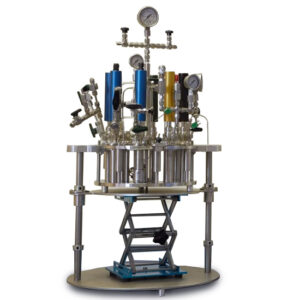
The Multicell-PLUS was developed by Asynt to provide scientists with a flexible and customisable device for high throughput screening of chemical reactions under high pressure. The reactor allows users to set up a multitude of experimental conditions in each of its 8 reaction cells, ideal for optimisation and screening investigations. Manufactured from 316 stainless steel, the Multicell-PLUS standard unit operates up to 50 barg and up to 200 ºC. For more demanding and corrosive chemistries, there are options for alternative alloys and for increased operational conditions up to 200 barg and 300 ºC. Motor-driven magnetically coupled overhead stirring is also offered as an option for reactions involving particulate suspensions or viscous reaction mixtures. With its own safety-locking mechanism and adjustable support lifting platform, the Multicell-PLUS high-pressure reactor sets a new benchmark for operator safety, all-round accessibility, and ease-of-use.
For further information about this pressure reactor: www.asynt.com/product/multicell-plus/
The Process Intensification Group sits within the Chemical Engineering Discipline in the School of Engineering at Newcastle University, UK. The Group’s research focus is on developing intensified processes using techniques where the process rates are enhanced by orders of magnitude in comparison to conventional processes. This results in equivalent reductions in equipment size, capital, and operation costs. Most of the group’s research is around biorenewable chemicals and fuel production, green chemistry and CO2 capture and conversion.
For further information on the work of the Process Intensification Group and sustainable and affordable catalysis please visit http://pig.ncl.ac.uk/.
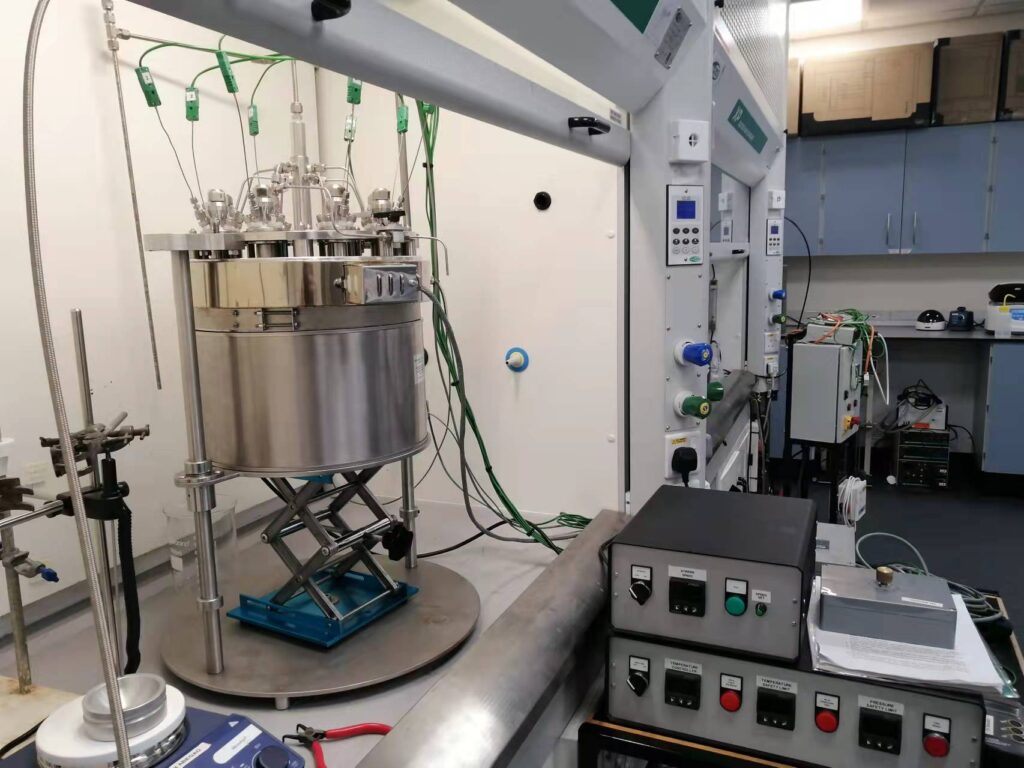
To download the press release in full in pdf format: UK scientists apply pressure to develop sustainable and affordable catalysis for production of biorenewable chemicals
- Des chercheurs britanniques mettent la pression pour développer des catalyseurs durables et abordables destinés à la production de produits chimiques biorenouvelables
- UK-Wissenschaftler arbeiten fieberhaft an der Entwicklung einer nachhaltigen und erschwinglichen Katalyse zur Herstellung bioerneuerbarer Chemikalien.
- Los científicos del Reino Unido aplican presión para desarrollar una catálisis sostenible y asequible para la producción de productos químicos biorrenovables
